In 2020, on the precipice of monumental elections, voters across the country are confronting grave concerns over the integrity of our democracy, fair access to the ballot, and equitable representation in government.
Here in Illinois, these democratic values have been undermined for decades by the state’s unjust and racialized practice of prison gerrymandering — counting incarcerated people at prison locations rather than their home addresses.
And if the Illinois General Assembly fails to abolish this inequitable system ahead of the 2021 redistricting process, the voting and representation rights of tens of thousands of Illinois residents will be violated and suppressed for the decade to come.
Ask yourself: Are people incarcerated in Illinois prisons receiving fair and accurate representation? Are legislators conducting visits and convening town halls in the facilities where their constituents are detained? No, they are not.
Instead, people who are incarcerated during a census year are counted in prisons where they are held temporarily rather than in their home communities.
A census count lasts for 10 years, but prison gerrymandering has continued, despite the fact that the average time spent in Illinois prisons was found to be 4.7 years, back in 2013. In fact, many felony convictions carry a total sentencing time range of between only 0.64 years to 2.21 years.
Prison gerrymandering robs incarcerated people, and their neighborhoods, of their rightful representation and exacerbates existing disparities in democratic representation.
The voices and votes that are most threatened by Illinois’ system of prison gerrymandering are those of Black and Brown people. That’s because this inaccurate practice of population counting serves to augment voter representation in predominantly white prison districts, while it unfairly suppresses electoral power in majority Black and Brown counties, which are disproportionately affected by the racial biases of the criminal justice system.
In fact, according to the most recent data available from the Prison Policy Initiative, 70% of the prison population in Illinois is made up of Black and Brown residents. And by far, Black Illinoisans make up the single largest demographic group of those incarcerated.
Prison gerrymandering also is harmful to rural communities that house prisons because it also can distort the local redistricting of county commissioners, city councils, and school boards. Nine states already have ended prison gerrymandering. Illinois should be the tenth. It should finally count its residents in an equitable manner that better reflects the actual make-up of our state’s diversity.
It’s important to note that two of the states that ended prison gerrymandering, New York and Maryland, saw no revenue loss in the municipalities that included prisons as a result of the change in how people who were incarcerated were counted, according to research by the Prison Policy Initiative.
How we draw legislative districts can affect a community’s ability to be listened to and to influence state government. Where is the representation due to people who are temporarily incarcerated? They get little to none.
The Illinois General Assembly has the power to end prison gerrymandering. It should act so that all of Illinois’ residents get the long overdue representation they deserve.
This column was co-authored by former CHANGE Illinois Advocacy Director Liliana Scales and DeAngelo Bester, executive director of Workers Center for Racial Justice. It was originally published by the Chicago Sun-Times.
